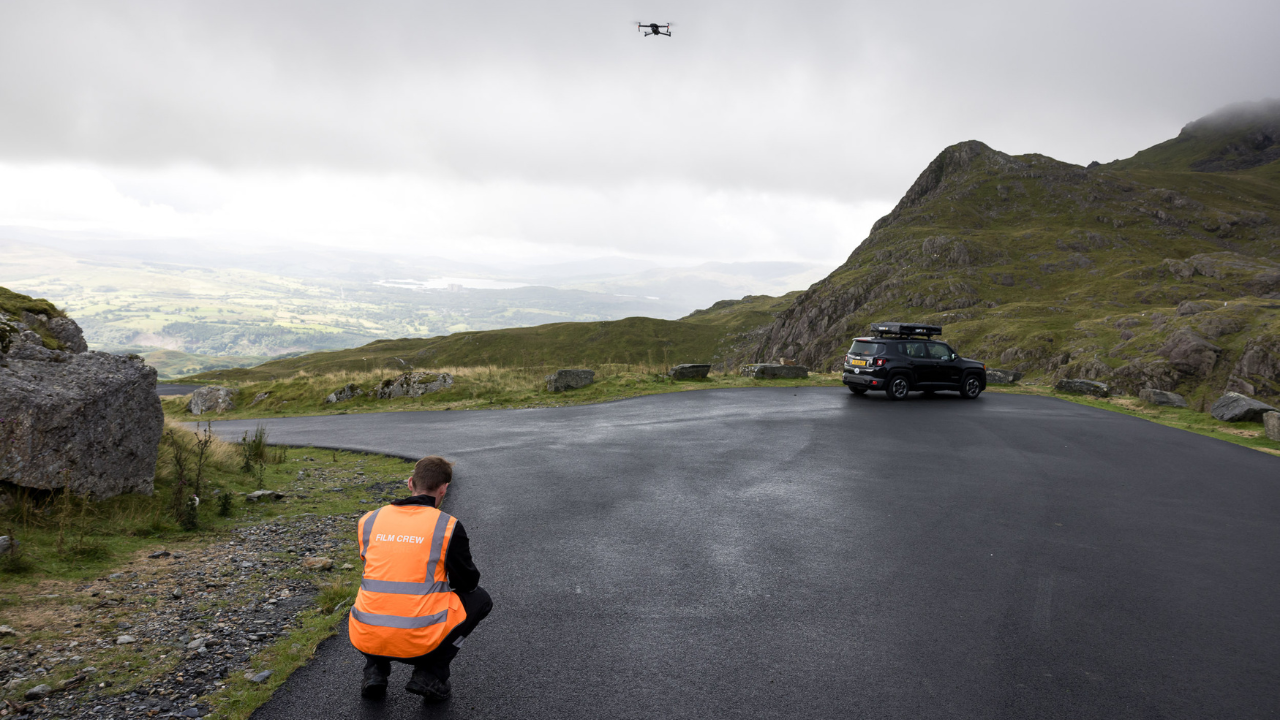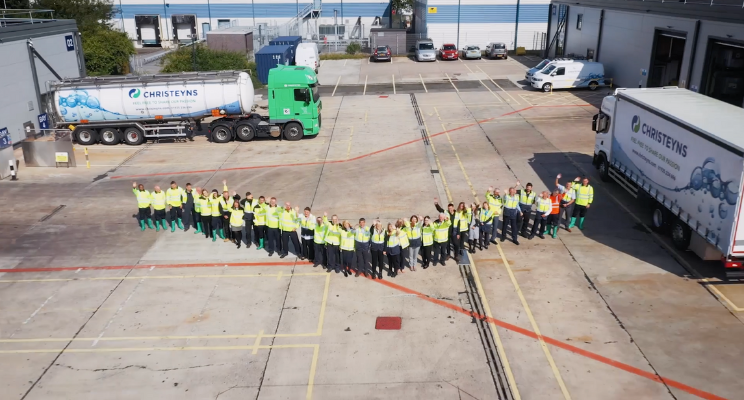Drone Filming & Flying Legally: What You Need To Know

Drones also referred to as remotely piloted aircraft systems (RPAS) or unmanned aerial vehicles (UAV) have become a popular item, commercially and recreationally.
They’re fun gadgets but also effective tools for businesses with warehouse surveying, search and rescue aids, delivery tools in otherwise unaccessible terrains & many more capabilities.
This blog will break down the restrictions on flying drones from a video production point of view, ensuring all of your video or photographic footage is legal.
The restrictions of flying drones is consistently updating due to the innovative nature of the products year on year, so it’s best to revisit the Civil Aviation Authority website to keep up to date with the most recent news.
What are the current drone laws?
Currently, operators must keep drones within their line of sight, and under 400ft (120m).
They must not be flown within 150ft (50m) of people and property, or within 500ft (150m) of crowds and built-up areas and 50 metres of a person, vessel, vehicle or structure not under the control of the pilot.
Most regulations are slightly blurred when it comes to exemptions. You’re allowed to be in a closer range when taking off and the weight of your drone can effect these guidelines.
You must avoid flying it within 150 metres of a congested area. It is imperative that drones are kept well away from aircraft, airports and airfields.
Those who endanger the safety of an aircraft through the use of drones could face a five-year prison sentence.
Legal responsibility for each flight lies with the operator.
Commercial drone operators are required to complete a training course and register with the Civil Aviation Authority. However in order to gain this, the CAA requires to see a completed operations manual and evidence of pilot competency. Here’s more information and suggested courses around National Qualified Entities (NQE).
What are the new drone laws?
The government has announced various changes to drone legislation, including mandatory registration for those those who own an aircraft weighing more than 250 grams.
Drone owners will also be made to a pass safety awareness course to demonstrate that they understand safety and privacy laws that affect their use.
The Department for Transport (DfT) has said that it is considering an age limit for the test, which could mean that children will be banned from flying drones.
There are also plans to extend the use of geo-fencing, in which drones have no-fly zones programmed into them around areas such as prisons and airports.
The government will also explore further measures such as increasing penalties, creating new offences and reviewing the powers available to law enforcement agencies to enforce relevant law.
If you’re flying drones for recreational purposes then you may find this drone assist based app helpful. Check out a top 5 to consider, here.
You can find out more information about commercial and non commercial flying regulations on the Civil Aviation Authority (CAA) website.
All this information may be a lot to take in but make sure you stay informed. Wether you’re trained or hiring a trained professional remember to have fun too!
Check out our top 3 ways that using drones can benefit your business blog, here.

Your Industrial Story
Starts Here
Press The Button. Make The Call. Transform Your Media.

